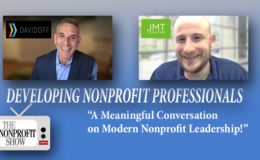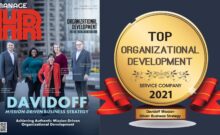Is your organization a deliberately developmental one?
In their book An Everyone Culture, Robert Kegan and Lisa Lahey write about the power and performance you can unleash in your organization by creating a culture that helps everyone overcome internal barriers and harness—rather than hiding—their vulnerabilities to drive personal and organizational growth.
The idea of the deliberately developmental organization (DDO) shouldn’t be radical. But in today’s “always look your best” (even if you’re terrified, faking it, or both) collective mentality, it can often seem that way.
The ideas Kegan and Lahey promote are elegantly simple but may take some thinking to execute effectively. Here are some highlights below. Think about how to apply these in your organization.
- Everyone is high-potential. Many organizations reserve development programs and activities for what leaders see as the “cream of the crop”, creating a fixed-mindset firm-wide that only certain people are worthy of investment (Carol Dweck’s well-known work on growth mindset covers the dangers of such closed thinking). Instead, if you aim to develop everyone, it creates a much more welcoming, growth-oriented culture and environment, which improves performance and morale.
- Sharing perspective is the cornerstone. A DDO is built on the idea that everyone in an organization will work to improve themselves, their teams, and the entire organization. “All employees in a DDO are expected to contribute to the shaping of the culture, to step forward at any time to improve how the organization does its work,” the authors write. But it’s also about individuals being willing to share their struggles, and how others can help them improve and grow, for everyone’s good.
- Internal is external—and vice-versa. Kegan and Lahey found that DDOs seek to improve both the inside and outside—from employees’ self-awareness to workspace design to how teams and individuals communicate. All of these elements work together and can motivate or diminish both the individual and the organization, so think about them carefully.
Mission-Drivers are comfortable in a DDO culture and typically help bring to life the ideas above, creating or enhancing such cultures. For example, Mission-Drivers are trained or have learned to scan continuously for ways they can better contribute to their individual, team, and organizational purpose. Mission-Drivers also assume ownership of the whole outcome, no matter their specific responsibilities or accountability. At Davidoff, we have a saying: “If you see it, own it.” It’s like seeing someone else’s trash on the sidewalk, and picking it up, based on a commitment to keep your neighborhood clean. When you are part of a DDO culture, you will truly experience everyone having one another’s back, knowing that no one’s work is done until everyone’s work is done — and done consistently, with a standard of excellence.
Creating an environment that fosters individual and group development, while recognizing and learning from individual/group vulnerabilities and struggles, requires dedicated practice. You can start by thinking about where your organization functions like a DDO and doesn’t, and how you might close the gaps, to create more of a Mission-Driven, Everyone Culture.
To learn more about assessing yourself and your organization, check out our blog Mission-Drivers Grow from Self-Confrontation.




